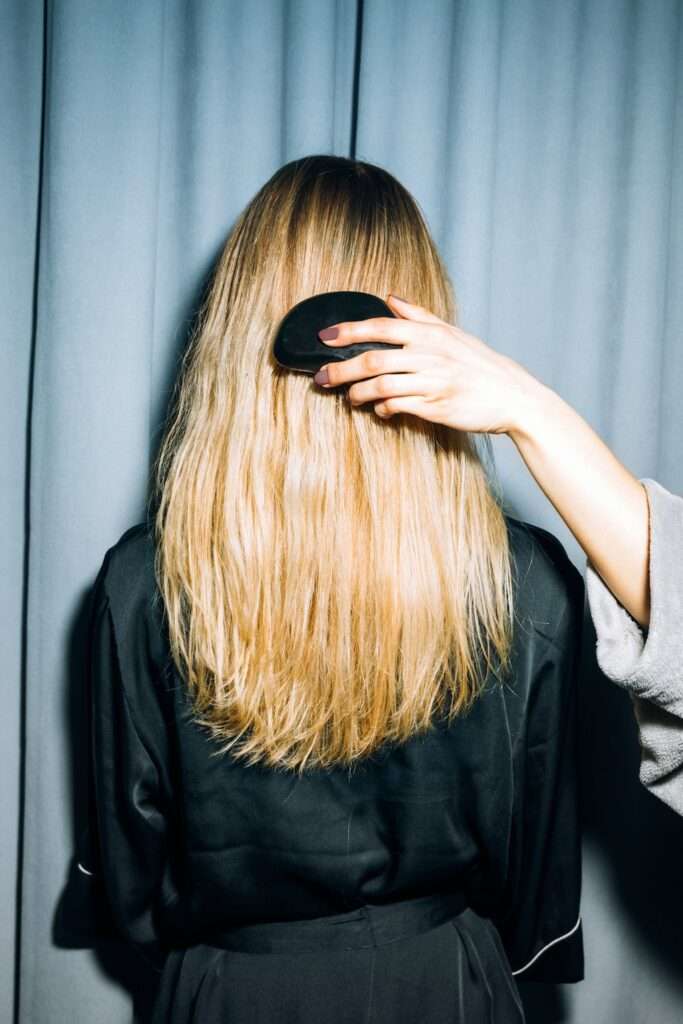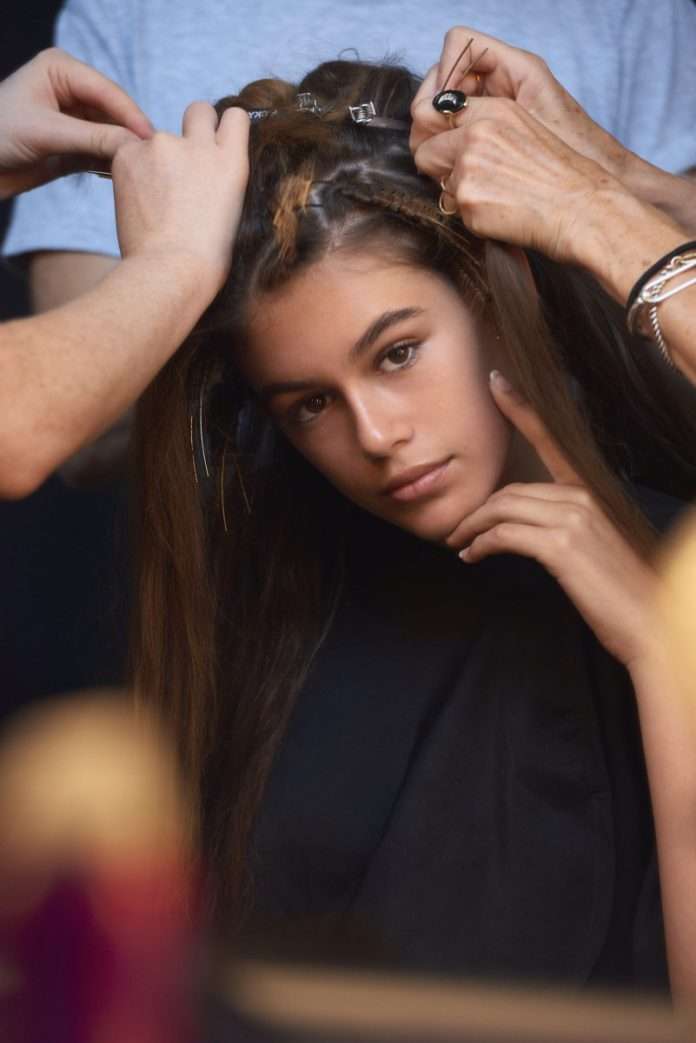Hair salons can do more than just give you a gorgeous new ‘do; they can help you protect the planet, too.
As that brilliant line from Fleabag perfectly summarizes, “Hair is everything,” and there’s arguably nothing wrong with taking some time out for yourself to get that brilliant blonde or those wispy bangs you’ve been yearning for. But when great hair is hurting the planet, it might be time to take a step back from the swivel chair for a moment and consider how we can all make better hair choices.
How do hair salons affect the environment?
Imagine your last hair appointment. You probably had a good chat with your hairdresser, had a relaxing hair wash and massage, and, if the appointment was a success, left with a great-looking and smelling head of hair. This was all down to your hairdresser’s expertise, of course. But they also likely relied on things like foils, hair colorants, glossy products, hair sprays, and a heck of a lot of water to achieve the right look — all of which have a monumental environmental impact.
After we’ve left the salon, most of us don’t think about where any of the products and resources used to treat our hair end up. But usually, it’s the landfill. In fact, research suggests that the North American salon industry produces around 150 million pounds of waste annually.

If you often get highlights, for example, most of the foils, that have ever been used to color your hair still exist. Only one percent will be recycled, and when they get to the landfill, they could take up to five centuries to biodegrade. There’s also plastic waste (most shampoo, conditioners, and other treatments come in plastic bottles), chemical waste (bleach, for example, can be highly toxic for soil and groundwater), and water waste (the entire salon industry uses up to 300 billion gallons of water every single year).
And, there’s also the actual hair itself to consider. According to National Geographic, salons across the U.S. and Canada throw out more than 31 tons of hair a day. All of this contributes to the substantial amount of emissions pumped out from landfills each day.
Do sustainable salons exist?
The salon industry is far from perfect when it comes to the environment. But some change is happening.
Aveda, which was founded in Minneapolis back in 1978, is B Corp-certified and has a big focus on environmental responsibility. The plant-based haircare brand, which also has 9,000 salons around the world, uses 100 percent post-consumer recycled materials in its products when possible, and relies on bioplastic made from sugarcane when it’s not. To manufacture its products, which are also used across its salons, it relies 100 percent on wind and solar power.
In the U.K., the Green Salon Collective is also working to make a difference. The initiative, which was founded by a team of hairdressers, environmental experts, and activists, is trying to transform the salon industry through its hair recycling program.

It works with several different companies to recycle hair into everything from rope to wool to wigs. According to the initiative, the hair it collects is even used to clear up oil spills. The hair is packed into cotton or nylon tubes and then placed onto the shore to stop the oil from spreading onto the beach.
Hair isn’t the only waste material the Green Salon Collective can collect. It also helps salons recycle metals (including foils), compost towels, and even convert food waste, too.
In San Francisco, another nonprofit called the Matter of Trust, is converting old hair from salons into mats to help clear up oil slicks and even waste foam from firefighting training.
“When you have hair on your head, it’s really important. But when it falls or you cut it, it suddenly becomes garbage,” Nanako Hama, a member of the Matter of Trust, told National Geographic. “Hair can be transformed into something really valuable.”
What can individuals do to help reduce waste?
Most of the change in the hair industry needs to be driven by salons. But there are things that individuals can do to help. One option is to choose salons that are already trying to follow more eco-friendly practices, like reducing water waste, using eco-friendly products, and recycling hair.

But if your regular salon isn’t prioritizing sustainability right now and you don’t want to switch hairdressers, you could offer up some gentle suggestions for ways they could improve their environmental impact. After all, increased awareness often inspires people to make more sustainable choices.
You can also ask your salon to donate your hair. For example, organizations like Little Princess Trust in the U.K. and Wigs for Kids in the U.S., turn old hair into wigs for children and young people who have lost their hair during cancer treatment.
Another option is to ask your hairdresser to keep your hair aside for you. It might feel a little odd at the time, but it turns out, your hair is a great natural fertilizer for houseplants. Just ask Green Hair Salon, which managed to grow potted plants 27 percent bigger just by adding hair to the soil. “Moral of the story: Hair is good,” noted the organization.
Related on Ethos:


